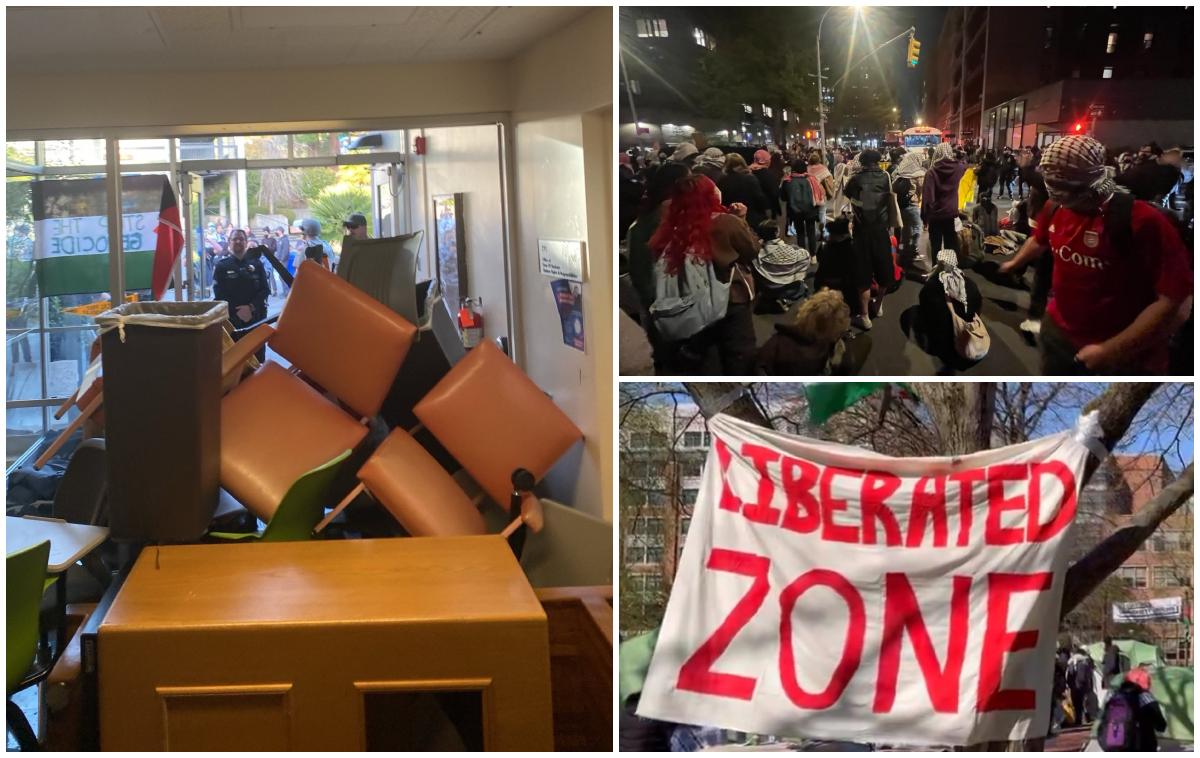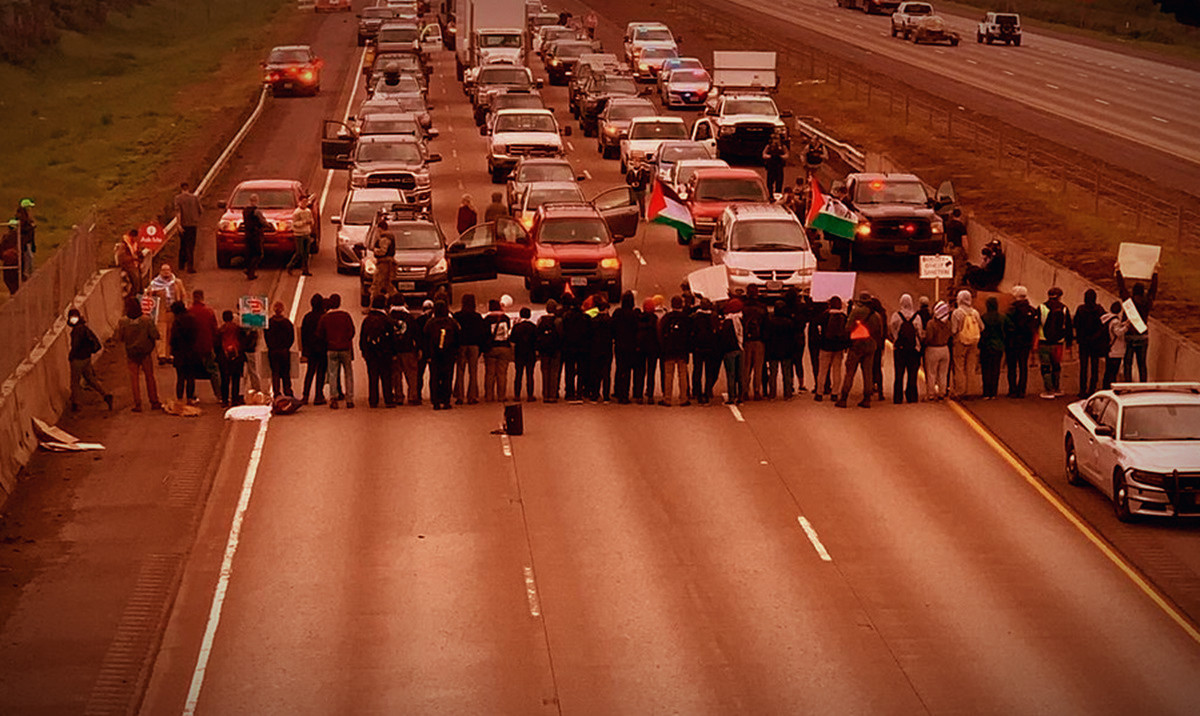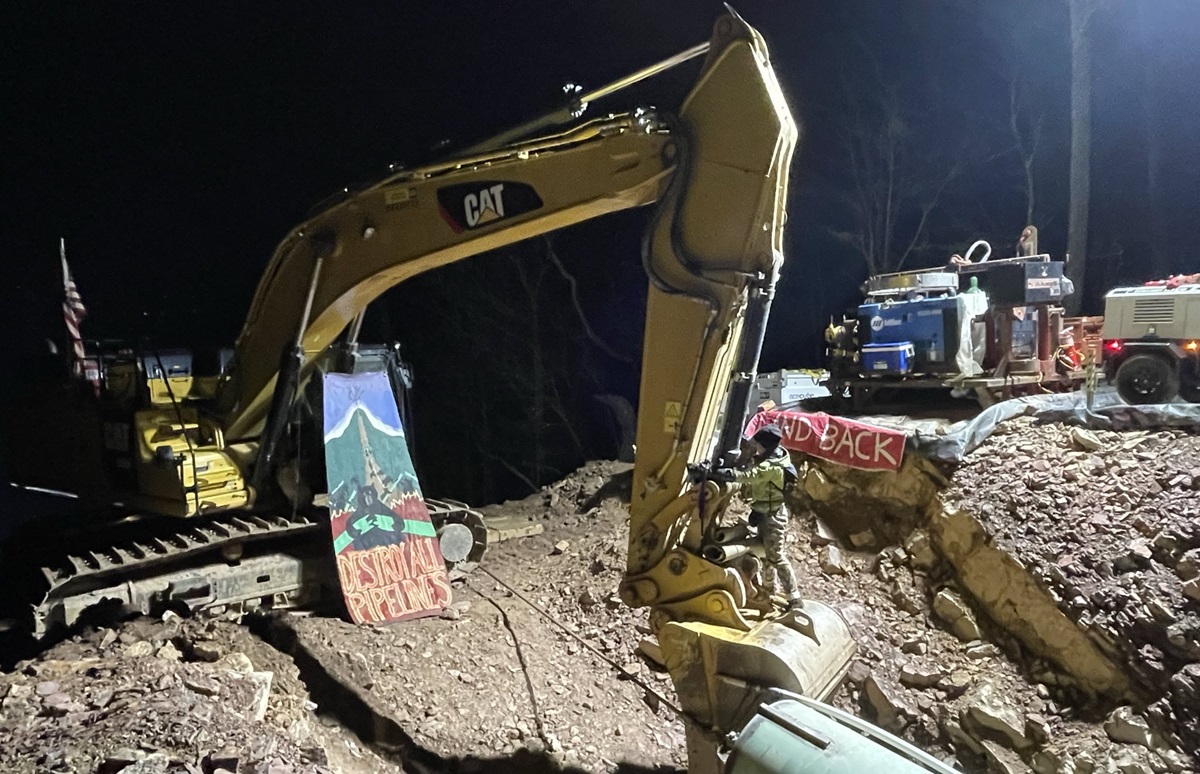Filed under: International Coverage
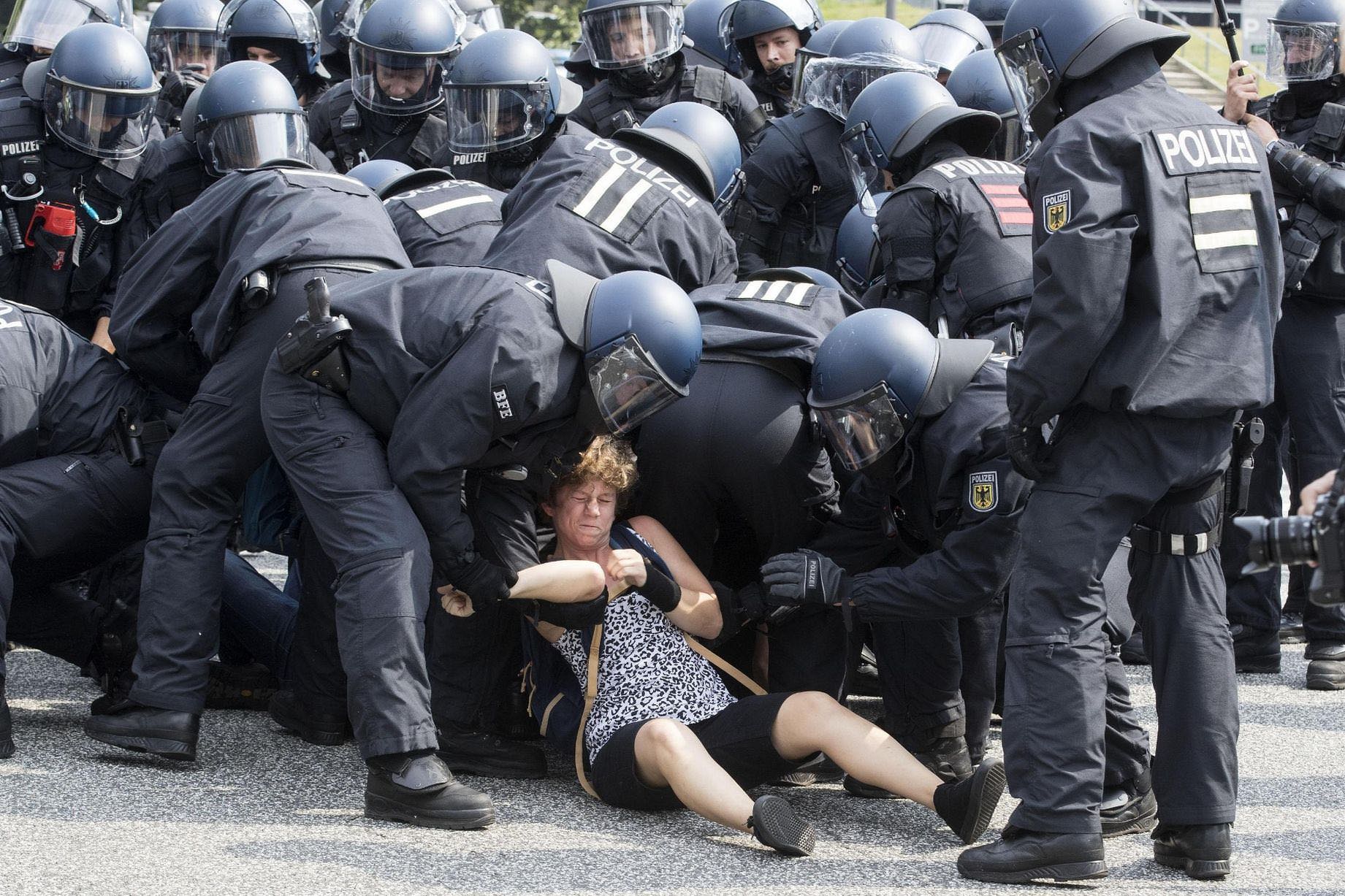
“So the question is: when you see storm troopers assaulting people, do you identify with the storm troopers or the people? This is the most fundamental political question of the 21st century.”
When the government concentrates 20,000 police in a city to violently suppress protest and people respond by defending themselves, it takes a real fascist to argue that the problem is “left extremism.” Yet this is precisely the kind of opportunism we are seeing from politicians and pundits in response to the G20 protests in Hamburg. The strategy here is simple: spread fear, terrorize the general population, and if anyone dares to resist, use that as a pretext to demand even more violent repression. Everyone who was in Hamburg knows the police struck first, carrying out unprovoked attacks nearly a week before the summit began.
Sure, some anarchists and other opponents of totalitarianism traveled from outside Hamburg to support local organizing against the G20 summit. Many people considered it unjust that the summit was being forced on a city that didn’t want it—a typical example of how the policies of the G20 are forced on unwilling populations. And after seeing the kind of policing that took place during the G20, who could fault anyone for wanting to show solidarity to the residents of Hamburg?
But—could a thousand “left extremists” armed only with the paving stones beneath their feet have defeated 20,000 police dressed head to toe in body armor and equipped with water cannons? Of course not. It took tens of thousands of people to beat back the police—and a large number of them were Hamburg locals, not “left extremists” at all. Even if some people did come to the protests with the intention of breaking things and acting unruly, the situation only went so far because so many “ordinary people” got involved.
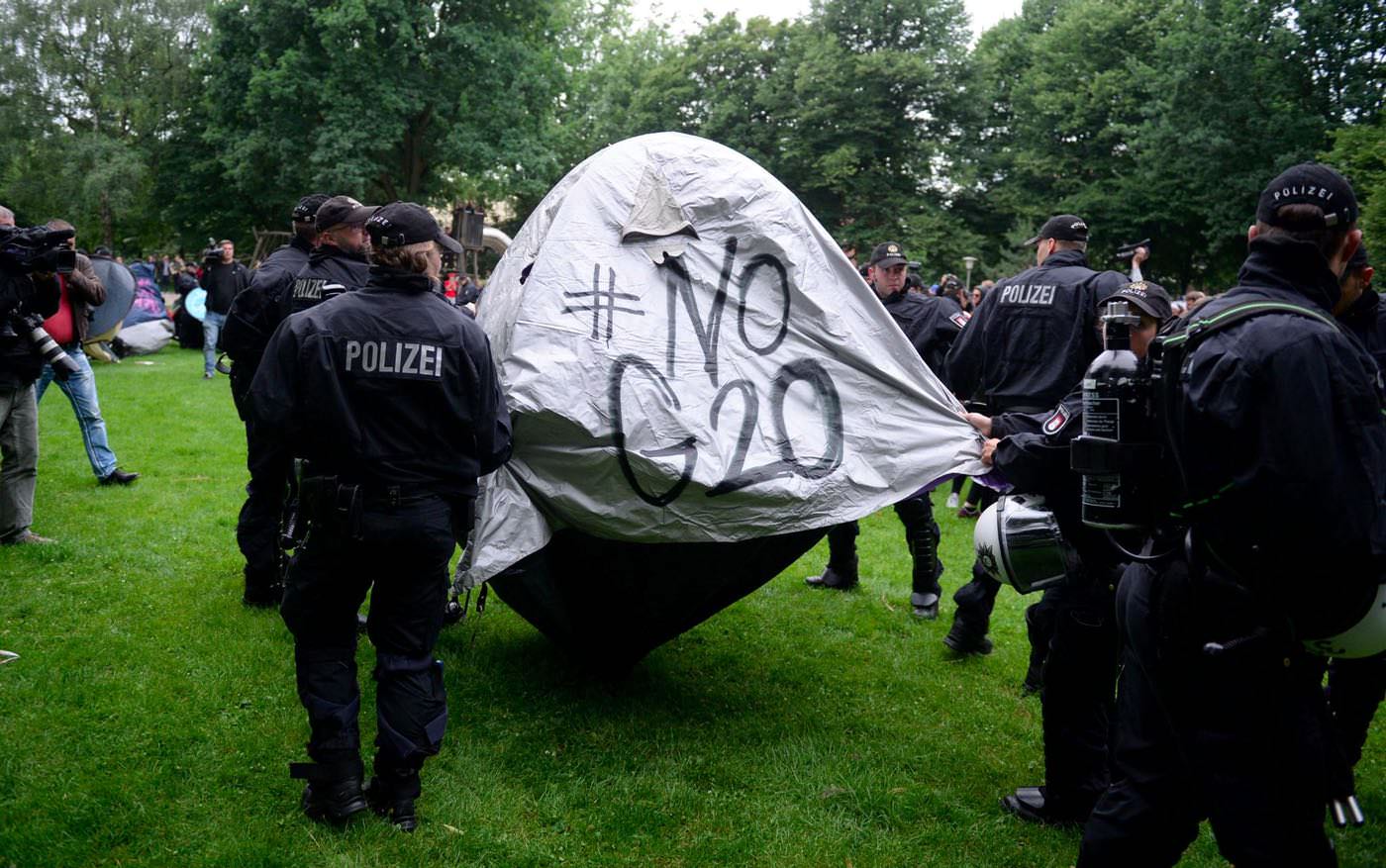
Police were intent on picking fights in Hamburg from the very beginning.
Many of the people who participated in the clashes in Hamburg did not start the G20 as avowed enemies of the police. It was only after they saw the violence and poor sportsmanship of the police on Thursday, July 6 that they realized they had to take a side. That’s why the resistance was so much stronger on Friday, July 7, the second night of confrontations. By Saturday night, at the end of July 8, almost all of the activists had left the streets, leaving only locals who had been drawn into the conflict over the preceding 48 hours.
Despite this, politicians, corporate media, and far-right nationalists are trying to use the reaction provoked by this heavy-handed police repression to justify it retroactively. Olaf Scholz, the mayor of Hamburg, has gone so far as to deny that there was any police violence in Hamburg at all. They are lying to you outright: cynically, they are assuming that you will believe anything they tell you. For example, everyone who was in the Schanze neighborhood on the night of July 7 when the police were forced out for a few hours knows that it was much safer inside the barricades than it was in the parts of the city where the police were still attacking people. Paramedics report that when the police finally reentered the district, they stormed spaces where injured people were being given medical care, threatening to shoot both caregivers and injured.
When politicians and corporate media say “violence,” they don’t mean police threatening to shoot people. They don’t mean tear gas grenades, water cannons, batons, phalanx charges, or punching arrestees. They don’t even mean police pepper-spraying reporters. They only mean the things people did in response, like building improvised barricades and using projectiles to keep police away from demonstrators.
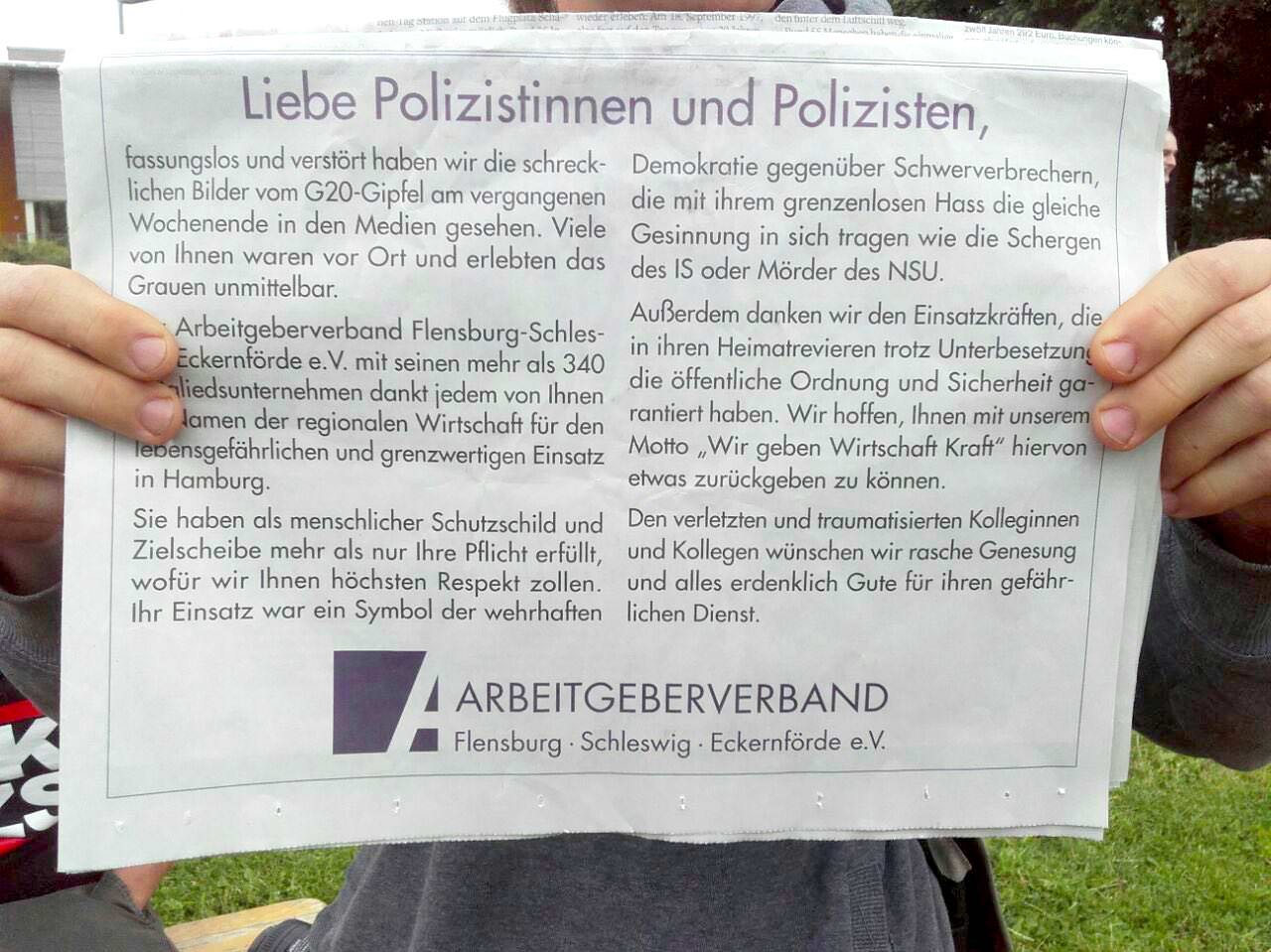
An advertisement thanking the police and comparing demonstrators against the G20 to the Islamic State and the NSU, a German Nazi terrorist group.
In the same spirit, the conservative newspaper Bild called the police “heroes” for the dubious public service of violently attacking people in return for a paycheck—and urged readers to show “solidarity with the police.”
Solidarity with the police! Grab a stick and hit yourself over the head! Open a fire hydrant, stick your face in it, and water-cannon yourself! Take a hot pepper and stick it in your eye! Shut down the streets of your neighborhood and trap your neighbors in their homes—and charge them money for it! Then give yourself a medal for being such a good citizen!
Bild directed people to a fund supporting the officers who were in Hamburg. It’s not enough that your taxes already go to pay for these thugs to run around beating and gassing people—apparently they deserve even more of your money. Maybe someone should organize “Solidarity with the G20 Leaders” too, so we can all give Donald Trump additional donations out of our own pockets? Surely the billionaires and the cops who serve them won’t have enough money until every single officer can drive around in a water cannon of his own, dousing the world in pepper spray!
Elsewhere in Bild, we learn that nearly 500 policemen were injured during the G20. This is pure mendacity: it came out immediately after that the number was only 231 officers, only 21 of whom couldn’t continue performing their duties. This statistic includes 130 officers from Hessen who exposed themselves to their own gas. We are supposed to feel sympathy for officers who hurt themselves with the same weapon they were inflicting on everyone else, even though they were the only ones with taxpayer-funded protective gear.
As for the 101 officers not included in the Hessen group—have you ever heard of offensive injuries? It would be interesting to learn how many of the 101 injured officers hurt themselves while punching, beating, or chasing demonstrators—and how many of them were injured by “friendly fire” from other police officers. And again, they were all protected by many thousands of euros worth of body armor, unlike the victims of their attacks.
In any case, if it’s so dangerous to run around gassing and brutalizing a mostly unarmed population, perhaps the answer is—don’t. If the authorities really cared about these officers, they wouldn’t make them beat up civilians in the first place.
The same dishonest Bild article interviews an officer who says he slept less than an hour for two nights during the G20 protests. The wonder is that any of these officers ever can sleep! If the rest of us sold ourselves as mercenaries to beat and humiliate civilians, our consciences would keep us up all night, every night.
Here we see the torturer expecting sympathy for a hangnail while he tightens the thumbscrews—the Grand Inquisitor complaining that he has burned his finger while setting fire to a witch. Sure, it’s hard work being an asshole to people all the time—but you don’t have to do it.
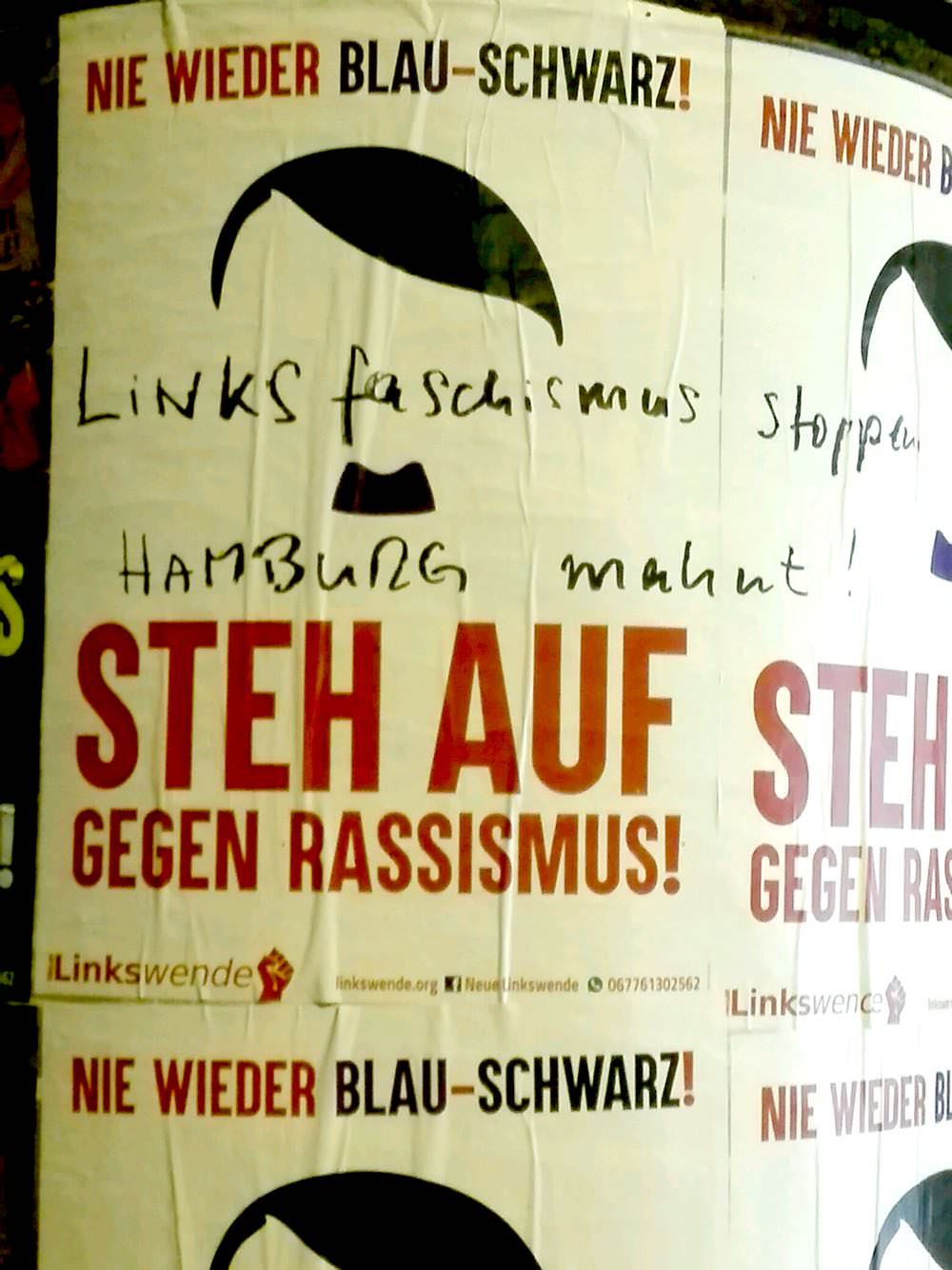
In Vienna, fascists defaced an anti-racist poster: “Stop Left fascism! Hamburg is a warning!”
The fact is, though, that the world of the G20 would not be possible without violence like this. You can’t force an extremely unpopular order on people without tear gas and water cannons. The police violence in Hamburg shows that Merkel and Macron do not really represent an alternative to Trump, Putin, and Erdogan. All of them rely on the same police tactics, the same exertion of brute force. The experience on the receiving end of each of their governments is increasingly identical: escalating surveillance, control, and brutality.
So the question is: when you see storm troopers assaulting people, do you identify with the storm troopers or the people? This is the most fundamental political question of the 21st century. On one side, this question gathers together politicians and pundits of all stripes alongside policemen and outright fascists. On the other, it gathers anarchists, rebels, and ordinary people who don’t wish to see tyranny in the streets.
The lines are drawn.
Windows break and you cry. People die and you remain silent!
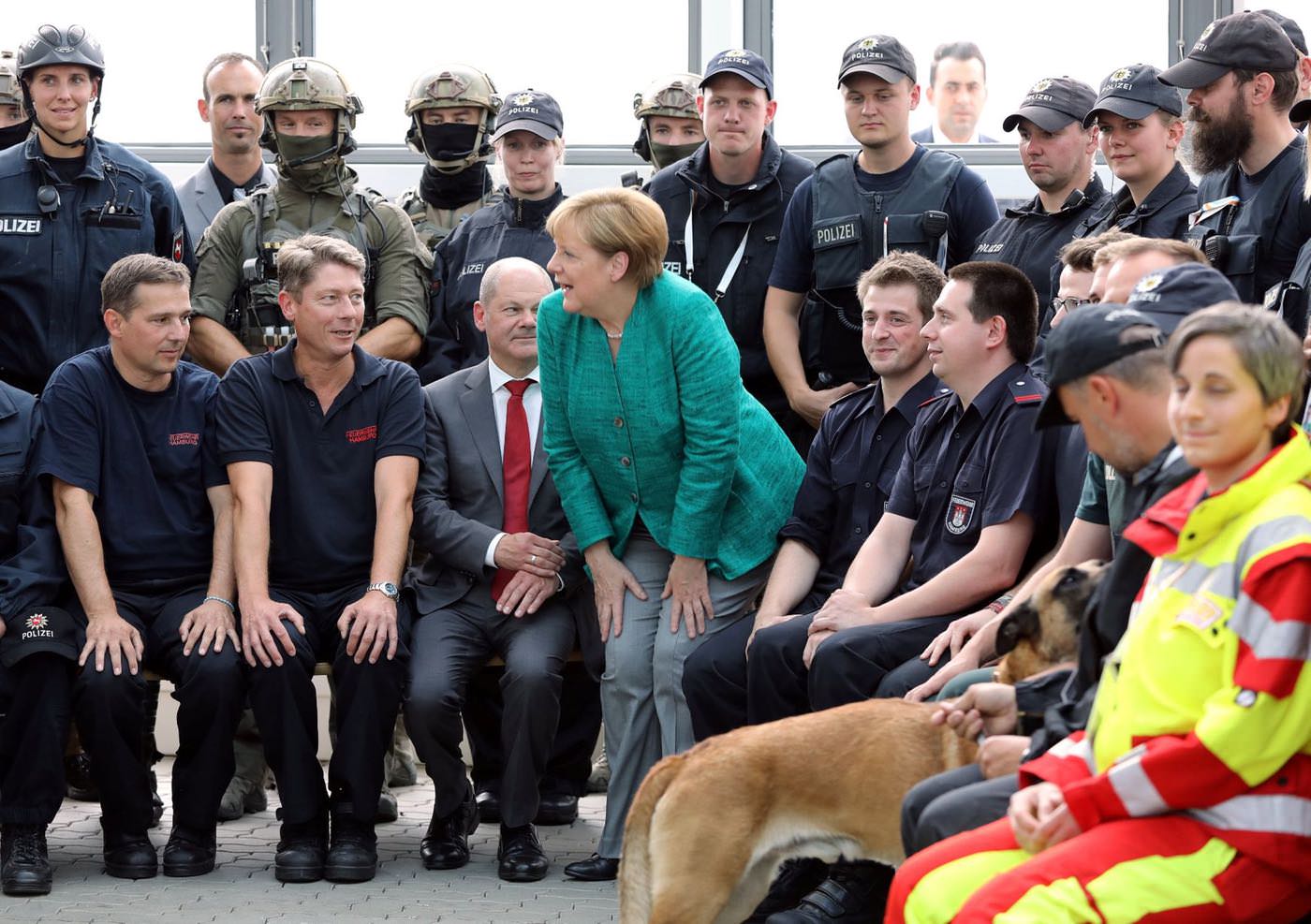
Just like Trump, Erdogan, Putin, and Macron, Merkel’s power rests on a foundation of police violence. Here, we see her thanking the police for their conduct during the G20.
Thanks to our comrades in Unicorn Riot for some of the above footage.



